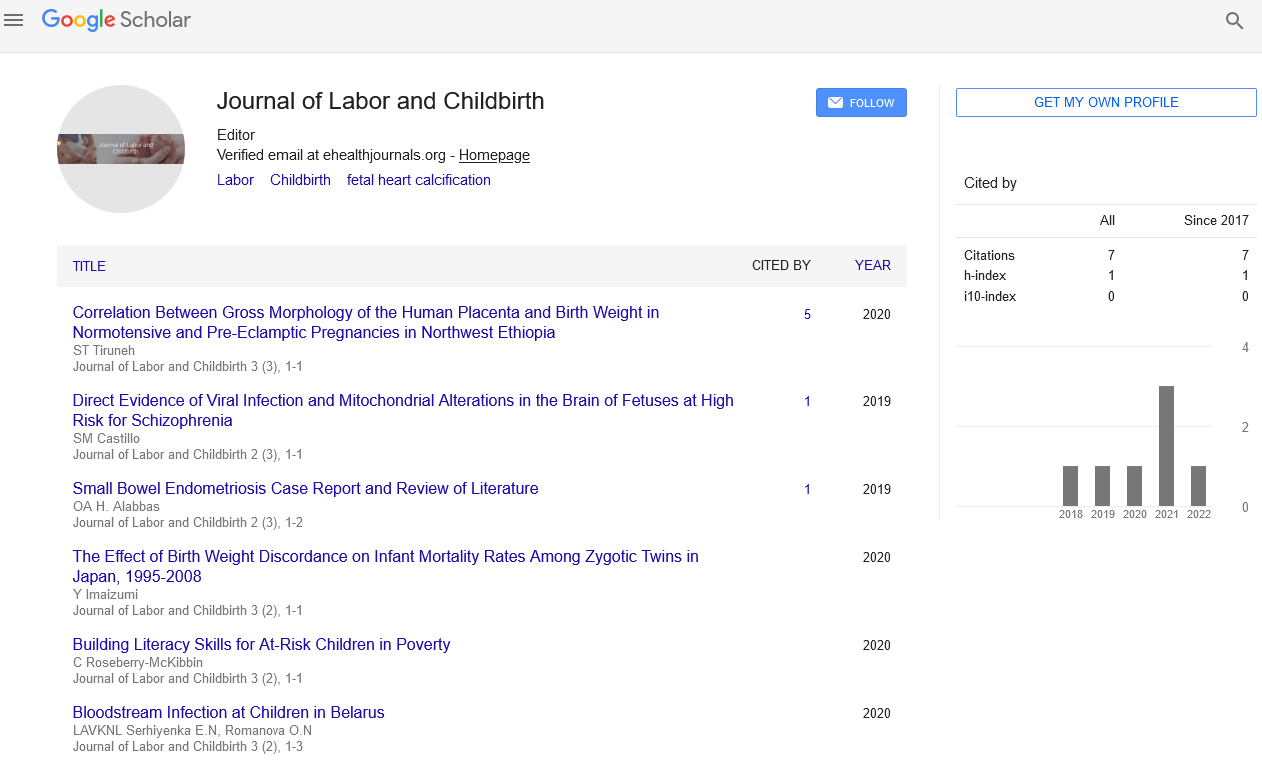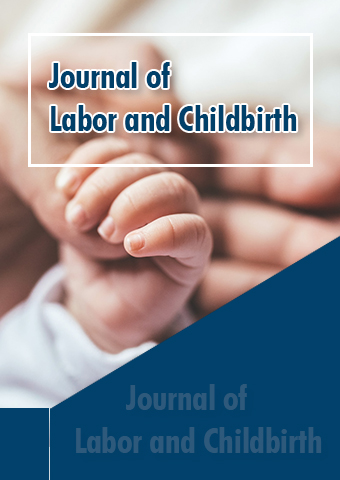Perspective - Journal of Labor and Childbirth (2023) Volume 6, Issue 6
Malaria in Pregnant Women: A Silent Threat to Maternal and Fetal Health
- Corresponding Author:
- Nancy Iris
Department of Gynecology,
Hawan University,
Bremen,
Germany
E-mail: nancystone12@yahoo.com
Received: 02-Nov-2023, Manuscript No. jlcb-23-119705; Editor assigned: 07-Nov-2023, PreQC No. jlcb-23-119705 (PQ); Reviewed: 21- Nov-2023, QC No. jlcb-23-119705; Revised: 07-Dec-2023, Manuscript No. jlcb-23-119705 (R); Published: 15-Dec-2023, DOI: 10.37532/jlcb.2023.6(6).162-163
Introduction
Pregnancy is a time of joy, anticipation and careful health management. However, for many women in malaria-endemic regions, the excitement of expecting a child is overshadowed by the looming threat of malaria. Malaria, a parasitic infection transmitted through the bites of infected mosquitoes, poses a significant risk to pregnant women and their unborn babies. In this article, we will explore the impact of malaria on pregnancy, the challenges it presents and the strategies to mitigate its effects.
Description
The global burden
Malaria continues to be a major public health concern worldwide, particularly in sub- Saharan Africa, where the majority of cases and deaths occur. According to the World Health Organization (WHO), an estimated 229 million cases of malaria occurred globally in 2019, with 409,000 deaths. Pregnant women are particularly vulnerable due to changes in their immune system and the increased volume of blood during pregnancy.
Malaria and pregnancy: A dangerous combination
Pregnant women face an increased risk of contracting malaria and experiencing severe complications compared to their nonpregnant counterparts. The most dangerous form of malaria, Plasmodium falciparum, is responsible for the majority of severe malaria cases and deaths and pregnant women are more susceptible to this species.
When a pregnant woman is infected with malaria, the parasites can sequester in the placenta, leading to a condition known as placental malaria. This can result in maternal anemia, low birth weight and preterm birth. Additionally, malaria during pregnancy is a leading cause of maternal mortality in malaria-endemic areas.
Impact on maternal health
Malaria can have severe consequences for the health of pregnant women. Anemia, a common complication of malaria, is particularly concerning during pregnancy as it can lead to fatigue, weakness and increased risk of other complications. In severe cases, malaria can progress to cerebral malaria, causing seizures, coma and death.
Moreover, pregnant women with malaria are at an increased risk of developing complications such as preeclampsia, a condition characterized by high blood pressure and organ damage, which can endanger both the mother and the unborn child.
Effects on fetal health
The impact of malaria on fetal health is profound. Placental malaria can interfere with the exchange of oxygen and nutrients between the mother and the fetus, leading to fetal growth restriction and low birth weight. Babies born with low birth weight are at a higher risk of neonatal mortality and face long-term health challenges, including developmental delays and an increased susceptibility to infections. Furthermore, malaria during pregnancy increases the risk of preterm birth, which can result in complications such as respiratory distress syndrome and developmental issues for the newborn.
Challenges in prevention and treatment
Preventing and managing malaria in pregnant women present unique challenges. Antimalarial medications are effective in treating the infection, but their safety during pregnancy varies. For example, some antimalarial drugs, such as chloroquine, are considered safe, while others, like doxycycline, are contraindicated during pregnancy due to potential harm to the developing fetus.
The use of insecticide-treated bed nets is a widely recommended preventive measure, as it helps reduce the risk of mosquito bites during sleep. However, ensuring consistent and proper use of bed nets in malaria-endemic regions remains a challenge.
The role of antenatal care
Antenatal Care (ANC) plays a crucial role in the prevention and management of malaria in pregnant women. Regular ANC visits provide an opportunity for early detection and prompt treatment of malaria. Additionally, ANC clinics offer a platform for providing preventive measures such as Intermittent Preventive Treatment in pregnancy (IPTp) with antimalarial drugs.
IPTp involves the administration of a full therapeutic course of antimalarial drugs, typically sulfadoxine-pyrimethamine, to pregnant women during scheduled ANC visits, regardless of whether they are infected with malaria. This p reventive s trategy h as b een s hown t o significantly reduce the risk of placental malaria and its associated complications.
The importance of research and innovation
Continued research and innovation are essential in the fight against malaria in pregnant women. Developing safe and effective antimalarial drugs specifically tailored for use during pregnancy is a priority. Additionally, exploring novel methods of vector control and developing vaccines that provide protection against malaria in pregnant women could revolutionize malaria prevention efforts.
Investment in research not only enhances our understanding of the complex interactions between malaria and pregnancy but also paves the way for the development of targeted interventions that can significantly improve maternal and fetal outcomes.
Empowering communities
Community engagement and education are vital components of any successful malaria prevention program. Empowering communities with knowledge about the risks of malaria during pregnancy, the importance of ANC and the proper use of preventive measures can contribute to a significant reduction in malaria-related complications.
Promoting women’s access to healthcare services, including ANC and addressing socio-economic factors such as poverty and malnutrition, can further enhance the overall effectiveness of malaria prevention efforts in pregnant women.
Conclusion
Malaria remains a significant threat to the health and well-being of pregnant women and their unborn children, particularly in regions where the disease is endemic. The complex interactions between the malaria parasite and pregnancy demand a multifaceted approach that includes preventive measures, timely and effective treatment and ongoing research and innovation. Addressing the burden of malaria in pregnant women requires a concerted effort from healthcare professionals, policymakers, researchers and communities. By prioritizing antenatal care, investing in research and empowering communities, we can make significant strides in reducing the impact of malaria on maternal and fetal health, ultimately ensuring safer pregnancies and healthier outcomes for both mothers and their babies.

